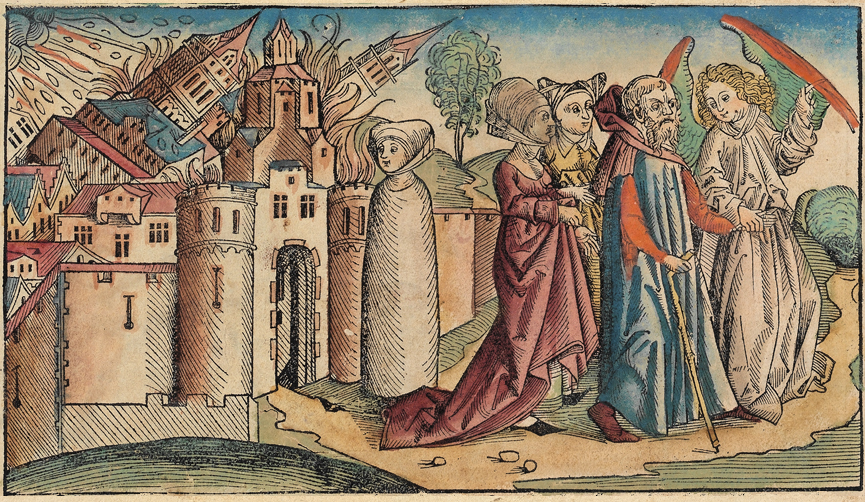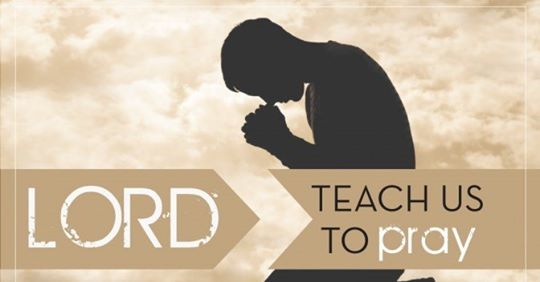|
Readings: Genesis 18:20-32 Luke 11:1-13 What I love about the Genesis reading is Abraham's confidence in speaking with God. It is breath-taking arrogance, yet Abraham seems certain he can negotiate with God about the outcome and destruction of Sodom and Gomorrah. The reading asks many questions, such as, what is our relationship with God, can we change God’s mind, and how are prayers answered? After communicating with God, Abraham must have felt that as long as at least ten people were righteous, then the towns would be saved. But as we progress into Genesis 19, we see the wickedness of the townspeople, which gives us a glimpse of the bigger picture to understand why the towns needed to be destroyed. We also gain some appreciation of God’s justice. We tend to domesticate God, thinking that we can get away with anything because God will understand, but in the story of Genesis, we see a demonstration of the full wrath of God. The two towns, Sodom and Gomorrah, were located on the south part of the Dead Sea. It is thought that the Dead Sea was devastated by an earthquake between 2100 and 1900 BCE. Abraham lived around 1900 BCE, so it is possible the earthquake destroyed Sodom and Gomorrah during his lifetime. This claim is backed up by the major fault the cities sat on: the Jordan Rift Valley. But there is another thought a meteor destroyed the City of Tall el-hammam, an archaeological site in the eastern part of the lower Jordan Valley, in around 1,650 BCE. So there seems to be some historical basis for the validity of the story. Sodom and Gomorrah, called the “cities of the plain”, of which I believe there were five, are sometimes used as metaphors for homosexuality. Indeed the words “sodomite” and “sodomy” have stemmed from this context as crimes against nature. Whilst you can understand from the Genesis reading why this thinking has been prevalent, it is important to also read the words of Ezekiel 16:49-50, who widened the areas of evil to include pride and the inability to aid the poor and the needy. The Luke reading is helpful in relation to prayer. The disciples want to know the best way to pray. The Jewish people have a special covenant with God, “I will take you as My own people, and I will be your God” (Jeremiah 30:22), but what do you have to do to fulfil your part of the covenant? The disciples are asking, what is the minimum we need to do in order to gain our special place as chosen people? This is not an unreasonable request from a disciple to a teacher, from a disciple to a rabbi. So, Jesus refers to some of the Jewish prayers. If reciting the Shema was the most important prayer, then reciting the Amidah was the second, which was said three times a day. The comparison between the Amidah, which contains 19 blessings, with the Lord’s Prayer is striking. Jesus did not come up with anything new but helped us prioritise what we ask from God. He did a similar thing recently by responding to the lawyer who asks what you should do to have eternal life. Jesus cut through 613 commandments and selected Deuteronomy 6:5, “Love the Lord your God with all your heart and with all your soul and with all your strength,” and Leviticus 19:18, “love your neighbour as yourself.” So, the Lord’s Prayer or the ingredients to the Lord’s Prayer were well-known to the disciples. The pericopes that follow this reading allow us to know how we should pray rather than what we should pray. We should pray in the way that works for us, but this has to involve communication, encountering God, speaking with God, listening to God, spending time with God, and understanding God. In the two stories that follow, there is something about persistence and keep on praying. This theme is taken up in Luke 18:1-8 with the story of the Judge and the Persistent Widow. We have to keep on asking, keep on seeking, keep on knocking. We can talk honestly with God, for God knows our motive for praying. Praying also connects us and helps us align our thoughts with God’s. Instead of praying for ourselves, we pray for what God wants us to pray for a Just society. We need to have faith that God has heard our prayers. Perhaps the answer to our prayer is obvious, or maybe God says no because it does not fit God’s plan. Maybe our prayers are answered in a way that we cannot see or are granted at a time that is more in keeping with God’s time than our time. Whichever way prayer is answered, we must continually trust that God has a better plan for which we play an integral part. This sermon was originally preached at Chadwell Heath URC by Rev'd Martin Wheadon on 24th July 2022
1 Comment
|
©Copyright
We are happy for you to use any material found here, however, please acknowledge the source: www.gantshillurc.co.uk AuthorRev'd Martin Wheadon Archives
June 2024
Categories
All
|


 RSS Feed
RSS Feed